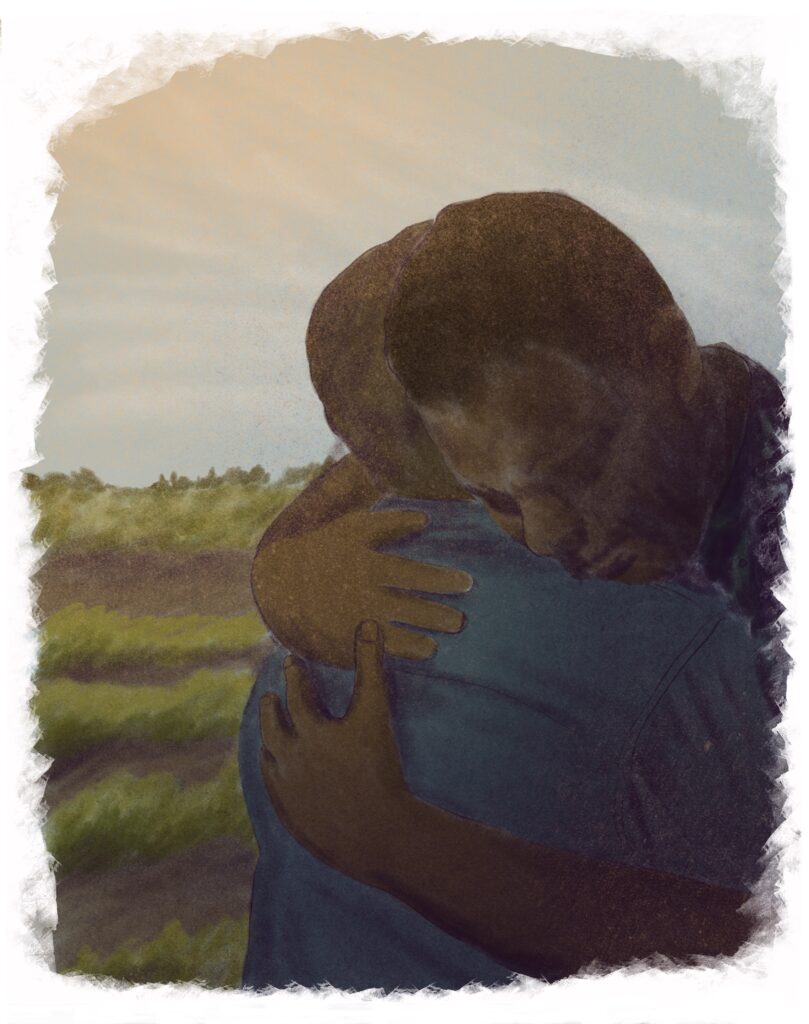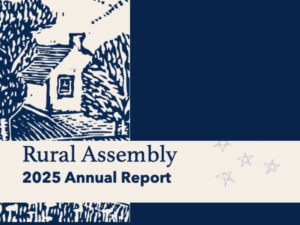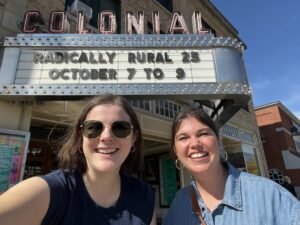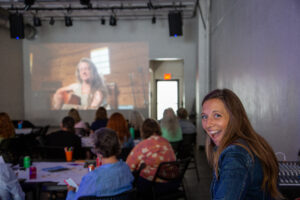By Nhatt Nichols

Living in a rural place often drives home the idea that love is a verb; it’s something you choose over and over, because that kind of verb can impact your tight community in remarkable ways. This week, I spoke with Rev. Richard Witt, the Executive Director of Rural and Migrant Ministries, whose work shows that faith can also be an incredibly powerful verb.
Rural and Migrant Ministries works with farmworkers and rural families in New York to build community and develop leaders through programs that support advocacy and education. From their beginning in 1981, they’ve used grassroots organizing to address big, systemic issues, not simply become a social service or a large congregation.
“What [the founders] had in mind was, ‘how do you root yourself in grassroots rural communities, especially farm working communities, and how do you at the same time, provide a vehicle for people of faith to live into their faith in regards to injustice and transformation. And how do you create a bridge between those communities?” Witt explained.
With the hopes and issues of marginalized people at the forefront, they started by creating tangible programs, like a Head Start program for children of farm workers who otherwise had to wait on the edge of the orchards or the fields while their parents worked; helping a group of rural teenagers address a shopping mall that had a quota of hiring one person of color per store; and helping a group of farm workers create a food cooperative.
“It became very clear that folks needed allies, and it became especially clear in going up to the Capitol one day and an aide to a very powerful state senator said to the farm workers, ‘you don’t count because you have no political voice,’” Witt said.
That was really a clarifying moment for Rural and Migrant Ministries, and from that point on, they’ve brought faith communities together with people they’re not normally in relationship with.
Witt described these relationships as people being allies without being paternalistic, which really resonated with me. Though faith groups are by no means the only organizations guilty of this, the urge for people to do things for people they consider in need instead of with them is one of the ways in which resilience can be deeply undermined.
One of the key things Rural Migrant Ministries combats is the way the current administration is sowing discord. “New York has a long history of immigrant farm workers in rural New York, and there have been tensions and oppression, but it hasn’t been to the degree in my career that I see now,” Witt said.
He and the rest of Rural Migrant Ministries have been working to get folks to see the humanity in each other. “We just had a Good Friday vigil in front of the border patrol station on Lake Ontario, because New York’s a border state, and we had 175 people,” Witt said with a sense of real awe at the fact that so many people from different backgrounds were willing to show up with only a week’s worth of organizing. Their message was simple: have mercy and empathy, and love your neighbor. And not just of the immigrant families, Witt clarified, but also the border patrol officers and their families. Witt believes it’s important to connect people with their humanity, and to put aside any assumptions they may have, to, as Witt put it, welcome the stranger in.
Over the next several months, the Rural Migrant Ministry is hosting “Save Our Local Economy” events along New York’s border with Canada. These are empathy-building events, and they are geared toward elected officials who are caught up in the administration’s vitriol.
Witt points out that when you raid dairy farms, which is a frequent tactic of ICE in New York and New England, there won’t be anyone to milk the cows. “If nobody’s milking the cows, there’s no milk. If there’s no milk, there’s no Chobani. And if there’s no Chobani, then folks that are working in related industries, like the hardware store that sells things to the worker at Chobani is now in trouble, and the local tax base is now in trouble, and it’s sort of like, Why are you all shooting yourself in the foot?” Witt explained.
By encouraging all members of their community to be invested in each other’s well-being, Rural Migrant Ministries is creating resiliency through faith that reaches beyond the walls of a church.







